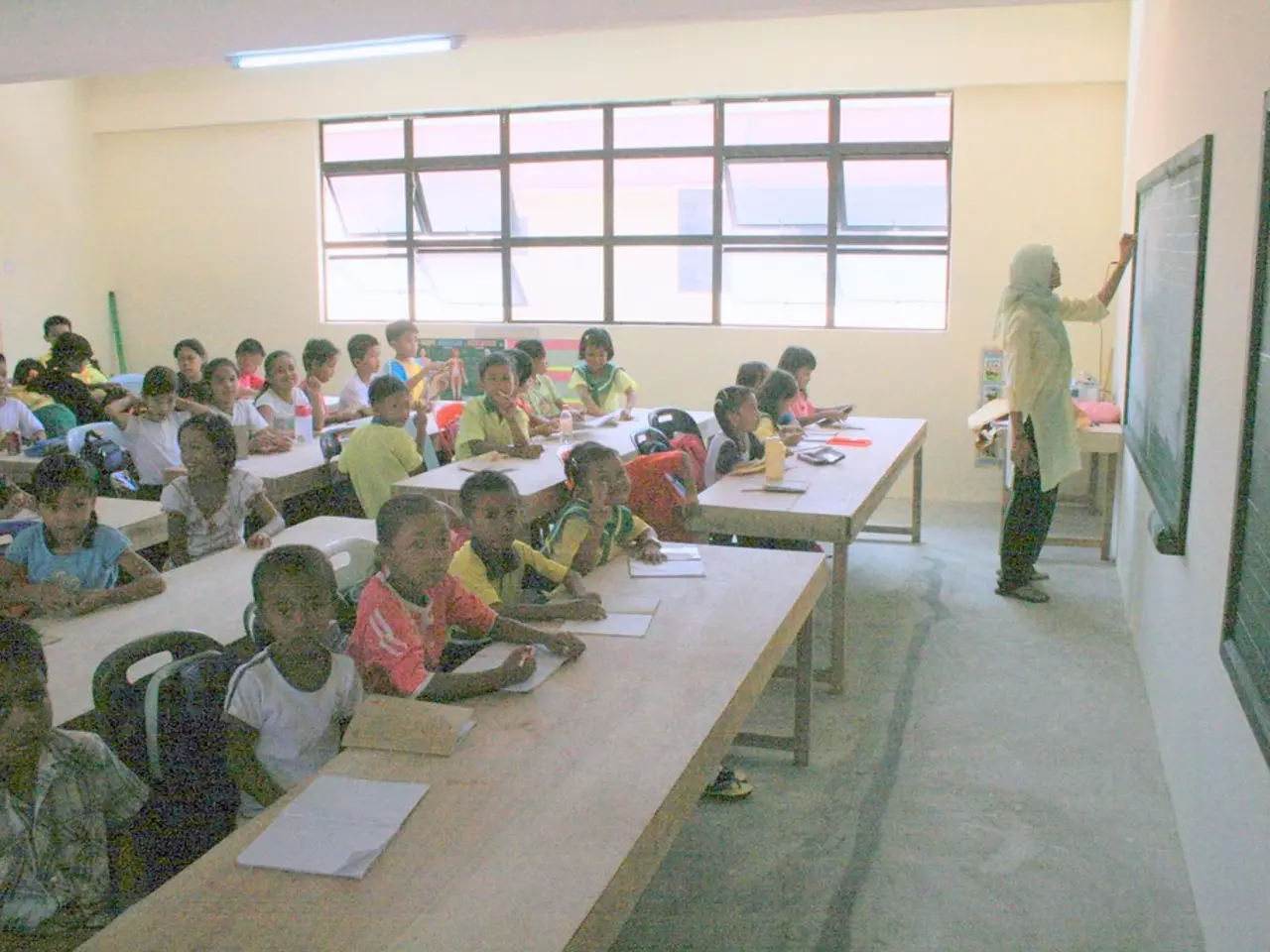Boosting imaginative learning experiences
New Report Highlights the Importance of Creative Education in Preparing Young People for Quality Jobs
A new report, titled "Enhancing Creative Education," published by the Creative Industries Policy and Evidence Centre (PEC) and the Institute for Employment Studies, has shed light on the crucial role creative education plays in preparing individuals for quality jobs in the creative sector.
The report, based on a survey of over 7,000 secondary school teachers in the UK, highlights several key findings and recommendations that aim to better align education and employment systems to equip young people with the right skills for creative jobs.
Key Findings
The report underscores the importance of the creative industries, with their success largely dependent on the talents, capabilities, and innovation of their workforce. To meet this need, there is a critical requirement for education and employment systems to be adapted to provide people with the necessary skills for good-quality jobs in the creative sector.
Research conducted as part of this initiative includes strategic assessments of the creative economy and focused studies on workforce qualifications and employer skill needs in creative industries.
Recommendations
The report suggests that educational frameworks should focus on developing both creative skills and the broader skill demands of the creative economy. Policies and practices should aim to enhance the quality of creative jobs by ensuring education systems provide relevant, up-to-date training that reflects current industry requirements.
More targeted support and interventions are necessary to bridge gaps between education outcomes and employer expectations in the creative sector.
The report also emphasizes the importance of effective strategies that focus on providing students with 'live' industry experience, local collaboration, and leadership. Creative subject teachers, such as art, design, and technology teachers, are more likely to provide such experiences for their pupils.
Impact of Creative Education
The report highlights how education can be a significant enabler of creative economic growth by adapting to evolving industry skills requirements and fostering talents that fuel innovation and economic contribution.
In addition, the report finds that 93% of 16-18 year olds report that creative education fostering self-expression, teamwork, and empathy positively impacts their mental health and wellbeing.
Implications of Brexit
The report also discusses the impact of the UK's departure from the EU on British firms trading and working with European counterparts in the Creative Industries.
Survey on Migrant and Skills Needs
A survey of employers in the UK's Creative Industries was commissioned by the Creative Industries Council to determine the migrant and skills needs of creative businesses. The report titled "Enhancing Creative Education" was authored by Joy Williams, Emma Pollard, Joseph Cook, and Morwenna Byford.
Challenges and Disruptions
The report also addresses the challenges faced by the creative education sector, including unequal funding and persistent inequalities disproportionately affecting young people from disadvantaged backgrounds. It calls for consistent investment and resources to better support the universal delivery of creative education in schools across the UK.
The report also notes that 99% of creative subject teachers in UK secondary schools felt that teaching was disrupted during the pandemic, 4% higher than other teachers from varying disciplines.
The report highlights the significant role creative education plays in preparing young people for quality jobs in the creative sector and provides recommendations for enhancing the quality of creative education in schools across the UK.
- The success of the creative industries is largely dependent on the talents, capabilities, and innovation of their workforce, as evidenced by the report "Enhancing Creative Education."
- To equip young people with the necessary skills for creative jobs, education and employment systems need to be adapted, according to the recommendations in the "Enhancing Creative Education" report.
- Research conducted for the "Enhancing Creative Education" report includes strategic assessments of the creative economy and focused studies on workforce qualifications and employer skill needs in creative industries.
- The report suggests that educational frameworks should focus on developing both creative skills and the broader skill demands of the creative economy.
- To bridge gaps between education outcomes and employer expectations in the creative sector, more targeted support and interventions are necessary, as suggested in the "Enhancing Creative Education" report.
- Teaching in creative subjects such as art, design, and technology can provide students with 'live' industry experience, local collaboration, and leadership, as emphasized in the "Enhancing Creative Education" report.
- The report finds that 93% of 16-18 year olds report that creative education fostering self-expression, teamwork, and empathy positively impacts their mental health and wellbeing.




